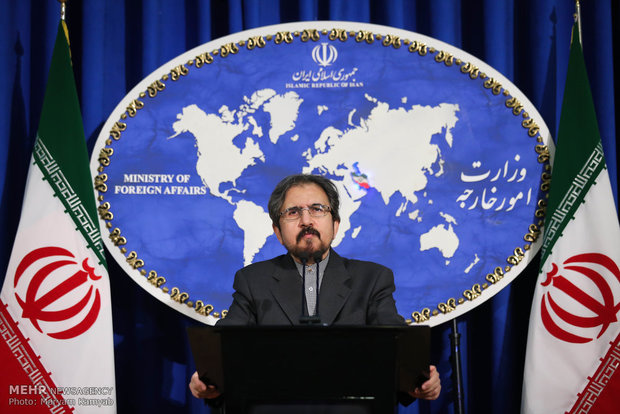Foreign Ministry Spokesman Bahram Ghasemi made the remark in his weekly press conference on Monday.
His remark was in reaction to a statement by Poland’s Ministry of Foreign Affairs in which the European country stated that it has the right to co-organize a conference, “whose goal is to develop a platform for actions promoting stability and prosperity in the Middle East region.”
The statement itself was in response to the summoning of Polish Charge d'Affaires by Iranian Foreign Ministry over an upcoming anti-Iran conference to be co-organized by US and the European country in February.
Ghasemi maintained that Poland’s behavior toward Iran is not acceptable, while referring to the warm welcome the Iranian nation had extended to the WWII displaced people from Poland.
He stressed that if the conference really intends to discuss regional issues, why no representative from Palestine has been invited to the event, and why the discussion does not include the Saudi-led catastrophe in Yemen.
Ghasemi further voiced hope that Polish authorities would reconsider their decision to co-host the anti-Iran conference with the US.
The spokesman then voiced surprise over receiving some criticism about Iran’s negotiations with Taliban within the framework of Afghanistan peace process, adding “our talks with the Taliban has been in full coordination with the Afghan government, and we are interested in restoration of peace, stability and security in Afghanistan.”
Ghasemi maintained that Iran seriously supports the Afghan peace process, and has been in contact with the Afghan government after the negotiations with the Taliban.
The future of Afghanistan will be decided by its own people, not by any foreign country, the diplomat stressed.
About the EU’s promised trade mechanism aimed at facilitating trade with Iran by bypassing US sanctions, formally called Special-Purpose Vehicle (SPV), Ghasemi said “our impression is that Europe is still interested in completing the mechanism, but they have also admitted that they don’t have the necessary structure to set up the system. They are under severe pressure from the US, which makes every possible effort to undermine cooperation between Iran and the EU.”
Ghasemi maintained that the SPV is a serious test for the EU, adding that the continued delay in its launch is not acceptable.
The diplomat went on to add, however, that Iran would continue its cooperation with the European side with an optimistic outlook.
MS/4512543
